Visual Metaphor Proposal:
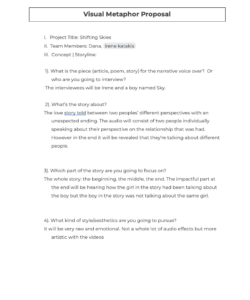

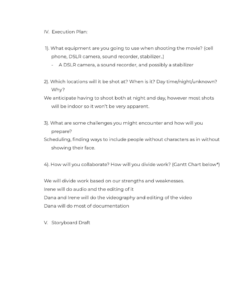
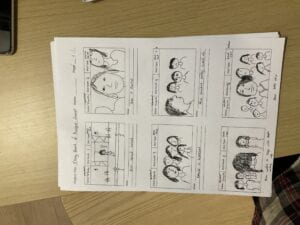
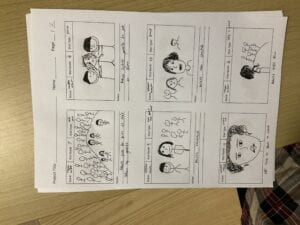
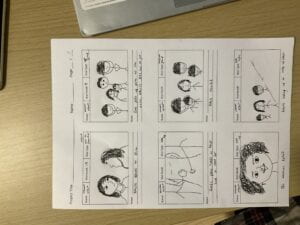
Visual Metaphor Proposal:






Hito Steyerl’s critique about challenging the “unbroken belief” in the documentary form really makes you think. What she seems to be getting at is how we’ve always believed that documentaries are these objective windows into reality, free from manipulation. But Steyerl shakes that belief by reminding us that documentaries are, in fact, subjective creations. They’re influenced by the filmmaker’s perspective, choices, and narrative style. So, they’re never entirely objective.
Think about movies and films that claim to be based on true stories. They might take some creative liberties for dramatic impact, but they often use truth as a solid foundation for their storytelling. That truth, those real events or experiences, add an authentic and relatable dimension to the fiction. Truth informs fiction by providing a genuine starting point for a compelling story.
On the flip side, fiction can also inform the truth. It can shine a spotlight on real-world issues and injustices that documentaries might not capture effectively. Fictional narratives can draw us in emotionally and make us think about real-world problems more deeply.
Now, when it comes to the media we consume daily, authenticity and truthful representation are paramount. The way media, whether it’s news, documentaries, or entertainment, portrays reality directly shapes our views and beliefs. When the media gets it wrong, when it misrepresents the truth, it can lead to misunderstandings and even divide society.
Authenticity in media is like a trust seal. It means that the content is reliable, credible, and as close to reality as possible. But it’s crucial to remember that even the most authentic content can have some bias, as it’s almost impossible to eliminate every ounce of perspective.
Live broadcasts are a big deal because they give us a direct look at events as they happen. They’re immediate and unfiltered, which can be incredibly informative and impactful. But live broadcasts are also prone to errors and misinterpretation. So, we need to approach them with a critical eye and be media-savvy.
In today’s world, it’s all about being aware. We have to remember that everything we see, whether it’s in documentaries or live on TV, has some level of subjectivity. So, critical thinking and media literacy are essential as we navigate this complex landscape of truth and fiction.
Welcome to Web Publishing @ NYU. This is your first post. Edit or delete it, then start creating your site!
Online help is available via the Web Publishing Knowledge Site (wp.nyu.edu/knowledge) and the ServiceLink knowledge base (www.nyu.edu/servicelink). Through ServiceLink, you can find step-by-step instructions, as well as tutorials.
As content creators who create and publish text, images, video, and audio, you must adhere to the NYU Website Accessibility Policy (https://www.nyu.edu/digitalaccessibility/policy) when creating and publishing digital content.
Web Publishing-specific Digital Accessibility Best Practices and examples of how to ensure your content are compliant are available at https://wp.nyu.edu/digitalaccessibility
If you have additional questions, contact the IT Service Desk for assistance. Support is available 24/7/365. For more details, visit www.nyu.edu/it/servicedesk.